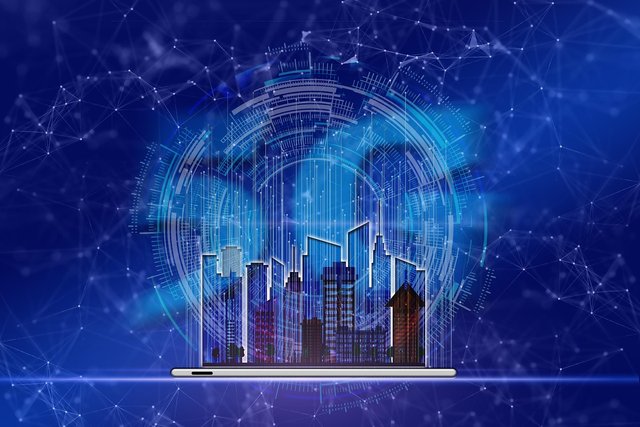An overall healthcare system around the globe is under transformation through blockchain technology, which is enhancing data security, interoperability, and patient control over medical records. Indeed, many traditional healthcare systems-and therefore, the records contained therein-are subject, at times, to breaches or inefficiencies; blockchain's decentralized ledger assures modified or deleted records are seized and locked. This feature contributes to patient privacy, medical credibility, and accessibility, thus promoting an equitable and more transparent global healthcare ecosystem.
The adoption of blockchain for electronic health records (EHR), telemedicine, and drug supply chains has decreased fraud, redundancy, and mismanagement. Data sharing in real time shall be possible for biomedical research, clinical trials, and real-time personalized treatments with the benefit of blockchain. Smart contracts that will automate the permission processes will mean that sensitive patient data will only be accessible by approved healthcare professionals, creating a streamlined, trustworthy, and efficient medical decision-making processes.
Global healthcare systems are, however, faced with issues of regulatory compliance, scalability, and interoperability once blockchain solutions are rolled out. Governments and health institutions examine the blockchain-based frameworks for developing standard, secure, and cost-effective healthcare systems. Through many further innovations, blockchain could rewrite the rules of medical data management, patient care, and health infrastructure at large, rolling out a more reliable global patient-oriented system.
With a world whose record is secure, transparent, and immutable, blockchain helps healthcare organizations meet all of the global data protection mandates. For example, HIPAA requires strict data privacy and security, which blockchain fulfills through decentralized and encrypted storage.
Compliance with regulations usually involves complex auditing and verification of data, which reduces the efficiency of operations and adds to their costs. Blockchain provides transparency for compliance checks, enabling healthcare providers to keep records audit-ready with automated updates and real-time access controls, thus minimizing administrative burdens while increasing overall regulatory transparency.
It will allow the government and healthcare agents to build legally binding standard frameworks for international data sharing that will allow the management of medical records in a unified way-keeping clear of anomalies and unauthorized access or interference with the data-for greater trust and accountability in healthcare management around the world.
Medical tourists are slow in getting their medical records while accessing care in the foreign country, which leads to delays in treatment and misdiagnoses. On the contrary, with blockchain, these medical histories are made instantly available-certainly with security-to practitioners worldwide who need accurate information about the patient for more effective treatment of international patients.
With global implementation, blockchain allows healthcare institutions to verify patients and their insurance coverage and prior medical history in real time. This eliminates opportunity for fraud and administrative delays, thereby allowing uninterrupted cross-border treatment while ensuring compliance with international healthcare policy and insurance agreement matters.
A globally interlinked blockchain-based healthcare system would standardize record keeping across nations. This would do away with language barriers, fragmented data storage, and inconsistencies in records; blockchain simply enhances continuity of care, making medical tourism safer, faster, and more reliable for the patients who travel for treatments.
In any emergency, delays in patient record access could be the nth factor in sustaining life. Given that under the blockchain technology framework medical histories can be retrieved with very short latency times by paramedics, emergency physicians, and hospitals alike, these actors can thereby treat patients quicker and in a more accurate manner.
Traditional medical records often require frontal confirmation, time-consuming and inefficient. A breakdown of any communication procedure will provide instant access to emergency medical responders, allowing them to verify allergies, medications related to pre-existing conditions, and past treatments can help minimize the risks of treatment and enhance chances of survival to such patients in emergencies.
When blockchain is implemented within emergency healthcare networks, hospitals can rapidly coordinate among themselves on the transfer of patients and prioritize those with critical cases. The secured automated sharing of the patient records ensures that all emergency care providers work with an updated set of data related to their patients, thus gaining an upper hand in saving more lives in emergency scenarios.
Patients have few opportunities to influence the fate of their medical records, which raises issues with data privacy, misuse of that data, and error. Guaranteed against tampering by blockchain's unchangeable ledger, patient data is far beyond data privacy, thus engendering the trust of patients in their healthcare providers and insurance companies.
Fraudulent claims and misrepresentation of medical records rank high on the list of the major problems in the healthcare arena. By employing blockchain technology, wherever a data entry is made, it is verifiable and time-stamped, thus preventing any unauthorized modifications to the exhibit, reducing the chances of false claims, and making sure that the medical establishments uphold their responsibilities toward maintaining accurate records of the patients.
Patients continue to have full ownership of their data and may in fact grant access to doctors, insurers, or researchers temporarily, clearly demonstrating patient-centeredness. This further improves transparency within the model and ethical medical practice, which eventually leads to a credible and effective global health care system.
The world of global healthcare is changing with the blockchain enabling regulatory compliance towards cross-border medical access, emergency response, and transparency in healthcare. That decentralized and secure architecture maintains data accuracy with real-time access, dignity in the eyes of patients, and better treatment outcomes. As blockchain merges into AI and healthcare technologies, it shall enable an efficient, transparent, and patient-centric healthcare system that revolutionizes the future of medical record management across the globe.
.webp)
.webp)

Upvoted! Thank you for supporting witness @jswit.
Downvoting a post can decrease pending rewards and make it less visible. Common reasons:
Submit
https://x.com/Sahmieo/status/1892828611922571552
Downvoting a post can decrease pending rewards and make it less visible. Common reasons:
Submit
Downvoting a post can decrease pending rewards and make it less visible. Common reasons:
Submit
Note:- ✅
Regards,
@jueco
Downvoting a post can decrease pending rewards and make it less visible. Common reasons:
Submit